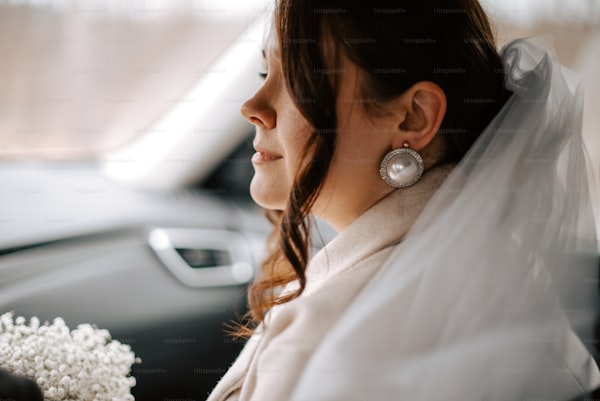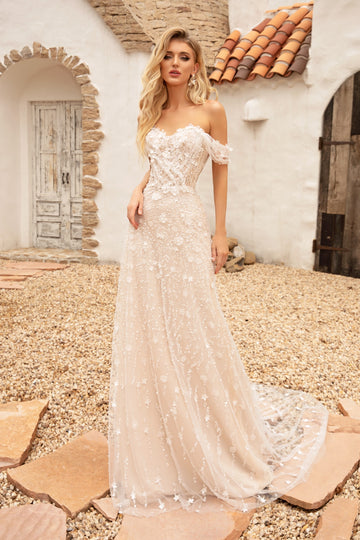The Evolution of Bridal Style: A Timeless Journey Through the Decades
The Evolution of Bridal Style: A Timeless Journey Through the Decades
Understanding Bridal Style Evolution
The concept of bridal style has transformed dramatically over the years, reflecting changes in culture, fashion, and societal norms. From the elegant dresses of the 1920s to the modern, eclectic ensembles of today, the evolution of bridal style mirrors our shifting ideals of beauty and individual expression. This article explores the journey through various eras, highlighting significant trends, influential figures, and the factors that have shaped bridal aesthetics over time.
The Early Years: Tradition Meets Simplicity
In the early 20th century, bridal attire was often characterized by traditional elements. The Victorian era had a significant influence on wedding garments, which typically featured long sleeves, high necklines, and voluminous skirts. Lace, tulle, and silk were popular materials that added a touch of elegance to bridal ensembles.
1920s: The Rise of the Flapper Bride
The 1920s marked a revolutionary shift in bridal fashion, inspired by the flapper movement. Brides began to embrace a more liberated style, opting for shorter hemlines and less restrictive silhouettes. The iconic bride of this era often wore a dress adorned with intricate beading and embellishments, channeling the glamour of the Jazz Age. Popular figures like Coco Chanel influenced modern designs, promoting a more relaxed yet sophisticated bridal look.
| Bridal Trends of the 1920s |
| Shorter Hemlines |
| Less Restrictive Silhouettes |
| Intricate Beading and Embellishments |
| Influence of Coco Chanel |
The Golden Era: 1930s to 1950s
As we moved into the mid-20th century, bridal styles became more elaborate. The 1930s saw a return to longer skirts, and fabric choices shifted to include satin and organza. The silhouette emphasized the waist, enhancing the body’s natural curves.
1940s: The Classic Hollywood Bride
With the rise of Hollywood glamour in the 1940s, many brides sought to emulate the elegant styles of movie stars. Iconic personalities such as Grace Kelly and Audrey Hepburn set the standard for bridal elegance. Wedding gowns became more structured, often featuring beautiful lace overlays and dramatic trains.
Setting Trends: The 1960s to 1980s
As the world embraced youth culture in the 1960s, bridal fashion took a bold turn. Mini-dresses made their way to the altar, reflecting the era’s spirit of rebellion. The 1970s brought in bohemian styles, characterized by flowing fabrics and relaxed designs, appealing to the flower child movement.
1980s: Bold and Extravagant
The 1980s were synonymous with extravagance, as bridal styles became more opulent than ever. Big, puffed sleeves, lavish fabrics, and long trains dominated the scene, inspired by pop culture icons like Princess Diana, whose wedding gown in 1981 set a global standard for grandeur.
The 1990s to Early 2000s: A Return to Simplicity
The turn of the century saw a return to simpler silhouettes, with minimalist designs gaining popularity. Brides began to favor understated elegance, often donning satin slip dresses and simple veil styles. Iconic figures like Kate Moss influenced this trend, promoting the idea of “less is more.”
Modern Trends: 2010s to Present
In recent years, the bridal industry has become increasingly diverse, reflecting a broader spectrum of personal styles. From colored Wedding dresses to unique accessories, modern brides have the freedom to express their individuality more than ever before. Social media platforms such as Instagram and Pinterest play a significant role in shaping contemporary bridal trends, as brides seek inspiration from real weddings and fashion influencers.

Key Influencing Factors in Bridal Style Evolution
The evolution of bridal style is influenced by a myriad of factors including:
- Cultural Changes: Shifts in societal norms and values greatly impact bridal fashion, altering perceptions of beauty and tradition.
- Celebrity Influence: High-profile weddings often lead to trendsetting, providing a glimpse into what styles are sought after by brides worldwide.
- Fashion Industry Dynamics: The fashion industry consistently evolves, which in turn impacts bridal collections and available designs in the marketplace.
- Technology and Social Media: Platforms like Instagram allow brides to share their unique styles and gain inspiration, thus democratizing bridal fashion.
Conclusion: Embracing Your Unique Bridal Journey
The evolution of bridal style serves as a testament to the bridal community's adaptability and creativity. Whether you opt for a classic, modern, or eclectic look, the most important aspect of your wedding attire is that it reflects your unique style and personality. As trends shift and evolve, remember to embrace what feels right for you on your special day.
When choosing your bridal style, consider the elements that resonate with you personally and do not be afraid to break away from tradition if that's what you desire. In this modern age of bridal fashion, the possibilities are endless.
Lastly, stay inspired and informed by exploring different styles, and don’t forget to check out bridal trends from reputable sources to make the best choice for your wedding day!
